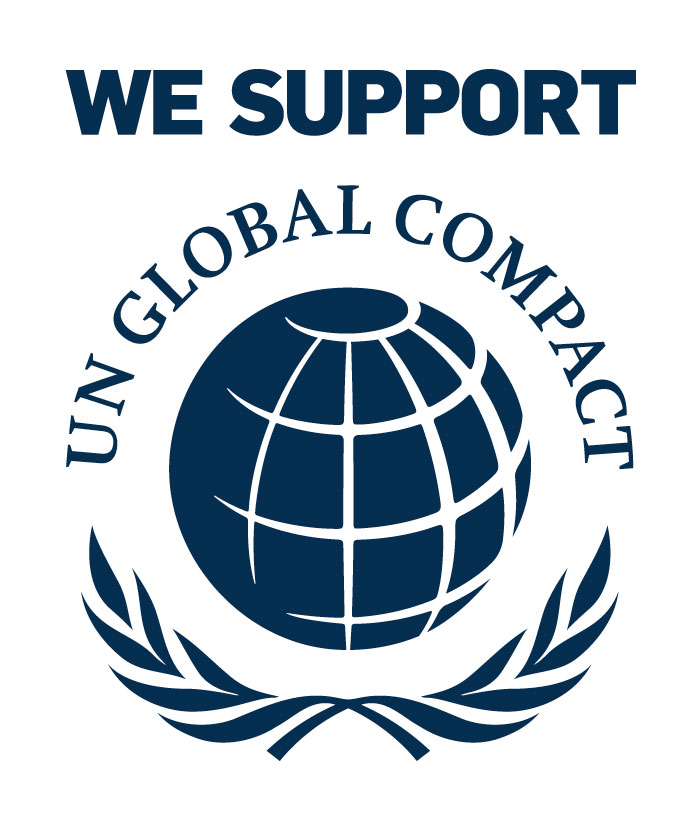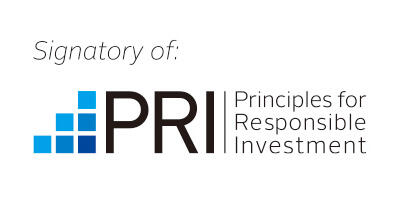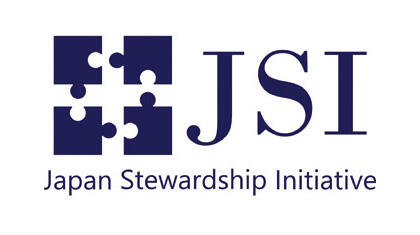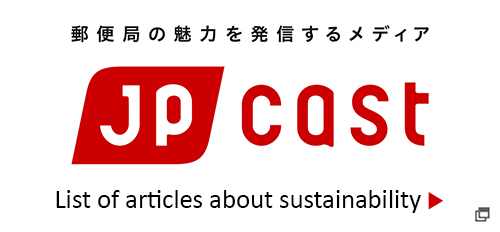- Position:
- Home

- English Home

- JP group Sustainability

- Sustainability Management

- Endorsement of Initiatives
Endorsement of Initiatives
Endorsement of Initiatives

Participation in the UN Global Compact
Japan Post Holdings, Japan Post Bank and Japan Post Insurance joined the United Nations Global Compact. The UN Global Compact is the international framework advocated by then UN Secretary-General Kofi Annan at the World Economic Forum on January 31, 1999, that calls for affiliated companies to practice the Ten Principles in four areas of human rights, labour, the environment and anti-corruption within their sphere of influence.
Each company aims to bring positive changes to the world by observing and implementing these principles while executing business. Visit the link below for more details.
- The Ten Principles of the UN Global Compact
-
Human Rights
- Principle1.
Businesses should support and respect the protection of internationally proclaimed human rights; and - Principle2.
make sure that they are not complicit in human rights abuses.
Labour
- Principle3.
Businesses should uphold the freedom of association and the effective recognition of the right to collective bargaining; - Principle4.
the elimination of all forms of forced and compulsory labour; - Principle5.
the effective abolition of child labour; and - Principle6.
the elimination of discrimination in respect of employment and occupation.
Environment
- Principle7.
Businesses should support a precautionary approach to environmental challenges; - Principle8.
undertake initiatives to promote greater environmental responsibility; and - Principle9.
encourage the development and diffusion of environmentally friendly technologies.
Anti-Corruption
- Principle10.
Businesses should work against corruption in all its forms, including extortion and bribery.
- Principle1.

Endorsement of the TCFD Recommendations
Japan Post Holdings, Japan Post Bank and Japan Post Insurance expressed support for recommendations by the Task Force on Climate-related Financial Disclosures (TCFD), which was established by the Financial Stability Board (FSB). In the Japan Post Group Basic Sustainability Policy, the Group declares: "We shall strive to undertake business operations adopted the impact of climate change and actively promote business activities and environmental conservation activities that consider reducing the burden on the global environment." In addition, in Japan Post Group Medium-Term Management Plan JP Vision 2025+, the Group has set the reduction of greenhouse gas emissions as one of its primary targets. Other than that, the group promotes initiatives for helping to build a sustainable society, including investment in green bonds. Further, the Group has analyzed the impact of climate change on the business of each Japan Post Group company based on the TCFD recommendations. Visit the link below for more details.

Signatories the PRI
Japan Post Investment Corporation, a subsidiary of Japan Post Bank, and Japan Post Insurance signed the Principles for Responsible Investment (PRI) supported by the United Nations. For details, see the link below.
- Japan Post Investment Corporation
 (Japanese)
(Japanese)

Support for Advance
In 2022, Japan Post Insurance expressed its support for Advance, a collaborative stewardship initiative enabling institutional investors to take action against social and human rights issues.
- Note: Japan Post Insurance is an Advance endorser and does not participate in any of Advance's engagement activities.

Joining CA100+
In 2022, Japan Post Insurance joined CA100+, an international investor initiative calling for action against climate change through collaborative engagement (dialogue with business enterprises).

Joining Japan Stewardship Initiative
In 2022, Japan Post Insurance joined the Japan Stewardship Initiative which exchanges opinions about practical issues across the industry and seeks to support the efficient communication of information with the goal of increasing the sophistication of and deepening stewardship activities.

Joining PCAF
In January 2022, Japan Post Bank and Japan Post Insurance joined the Partnership for Carbon Accounting Financials (PCAF), an international initiative that began in 2015 with the goal of standardizing the measurement and disclosure of information about the greenhouse gas emissions of investees and borrowers. Visit the link below for more details.

Becoming a GRESB membership investor
In 2022, Japan Post Bank became a GRESB membership investor. GRESB is an organization providing annual benchmark evaluations of the ESG efforts of real-estate companies and funds. Visit the link below for more details.

Signing the CDP
In 2022, Japan Post Bank and Japan Post Insurance signed the CDP, an international initiative involving the cooperation of major institutional investors around the world. The CDP engages in activities encouraging companies to take action against climate change and disclose their greenhouse gas emissions.
Visit the link below for more details.
- CDP
 (Japanese)
(Japanese)

Participation in the TNFD Forum
Japan Post Holdings, Japan Post Bank and Japan Post Insurance joined the Taskforce on Nature-related Financial Disclosures (TNFD) Forum.Visit the link below for more details.

Japan Climate Leaders' Partnership (JCLP)
In September 2023, Japan Post Holdings joined the Japan Climate Leaders' Partnership (JCLP), a corporate group that aims to aid the realization of a sustainable carbon-free society. Visit the link below for more details.
- Japan Climate Leaders' Partnership (JCLP)
 (Japanese)
(Japanese)
Contribution to Universal Postal Union (UPU)
Japan is a member country of the Universal Postal Union (UPU), which states in its Convention Manual that member countries and/or their designated operators (Japan Post Co., Ltd. in Japan) shall adopt and implement a proactive sustainable development strategy focusing on environmental, social and economic action at all levels of postal operations and promote sustainable development awareness.
Japan proactively contributes to the UPU, which works to address environmental, social, and economic issues involved in the postal service business. Visit the link below for more details.
Participation to the Package-Drop Service Conference
Japan Post has participated in the package-drop service conference supervised by the Ministry of Land, Infrastructure, Transport and Tourism (MLIT) and Ministry of Economy, Trade and Industry (METI). The conference was established to mitigate climate change by reducing redeliveries, cutting CO₂ emissions, and resolving relevant issues, such as the shortage of delivery drivers and excessive working hours. In addition to pickups using means such as delivery boxes, Japan Post has been providing a "Delivery Service at Designated Spot" since March 2019, leaving parcels on doorsteps, in meter boxes or other designated places. An overview of its initiatives and their effects were introduced in Japan's Environment White Paper 2020 issued by the Ministry of the Environment. Visit the link below for more details.
Participation in the Public‒Private Partnership Platform for SDGs for Regional Revitalization
Japan Post Holdings, Japan Post and Japan Post Bank participate in the Public‒Private Partnership Platform for SDGs for Regional Revitalization , an initiative of the Cabinet Office (Office for the Promotion of Regional Revitalization). Whilst building partnerships with various stakeholders, we will work on further promoting regional revitalization through initiatives to achieve the SDGs. Visit the link below for more details.

Support for COOL CHOICE
Japan Post Group supports COOL CHOICE.
COOL CHOICE is a national movement promoted by the Government of Japan (Ministry of the Environment) and aimed at achieving a reduction in greenhouse gas emissions such as CO₂. COOL CHOICE encourages wise choices that help tackle global warming, such as products, services and lifestyles that contribute to building a low-carbon society. Visit the link below for more details.
- COOL CHOICE-Ministry of the Environment
 (Japanese)
(Japanese)




